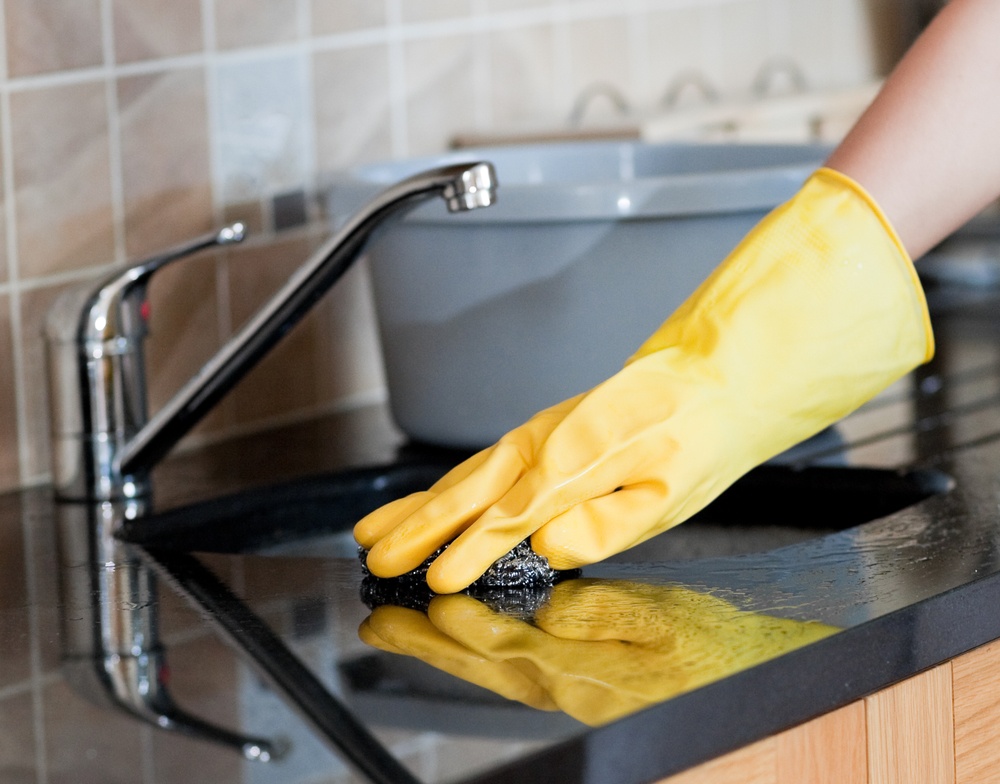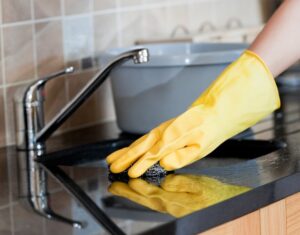What if you’ve only had your new kitchen counters a few days when someone spills coffee on them, seemingly tarring them forever. Or maybe you’ve had your countertops for years (decades, even!) and you can no longer tell what the original color or pattern was supposed to be.
Common stains come in many varieties, from coffee to juice, but the cause is always the same: unsealed stone counters, or manmade materials that can’t stand up to a bustling kitchen.
If you have natural stone countertops, they need to be sealed and resealed on a regular basis (with the exception of quartz, which is maintenance-free).
However, there’s good news for natural stone owners who let resealing go by the wayside. You can find some products on the market capable of removing even the toughest of stains, then all you have to do is reseal to prevent future mistakes.
You’ll be amazed at what the right stone counter cleaning and protecting product can do. However, it’s still best to prevent stains when possible, and that starts with knowing what the culprits are.
When Vices Attack
Many so-called indulgences and treats are the cause of kitchen calamities. Both coffee and tea are prone to staining countertops (coffee especially, due to its acidity). Plus, the fact that this is the beverage you reach for when you’re groggy-eyed doesn’t help.
Keep clean, cotton towels on hand to quickly and thoroughly wipe up spills. Pay special attention to the coffee pot area, and keep a non-porous protector underneath for tiny spills.
Other staining fluids include juice, dark sodas and red wine. If you have children in the house, the juice and soda can become particularly troublesome — and again, they’re acidic. Stones like marble are especially good at soaking up these beverages, so you need to wipe them up completely as soon as possible.
However, even marble can be saved with the proper cleaning/re-sealing combination.
When Cooking Goes Wrong
It’s not just beverages that can cause kitchen staining. The act of cooking itself can wreak havoc on your countertops, especially if you’re a messy cook prone to grease splatters. Sauces also can cause trouble, as can foods such as berries, gravies and almost any other dark food.
Grease, oil, and debris can seep into the pores of natural stone counters, making them look grimy and dirty no matter how hard you scrub.
When resealing stone countertops, pay special attention to the area next to the stove — it’s a danger zone for stains — and don’t forget about the backsplash if you also have natural stone there.
Keep your kitchen counters protected and looking gorgeous by sticking with a stone safeguarding routine. Call Intermountain Stone & Marble today for a consultation and to find out more about protecting your stone countertops.


